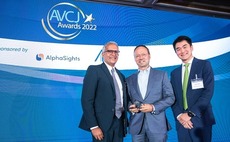
Adding extra: China bolt-on acquisitions
Private equity firms are exploring various strategies to help Chinese companies expand overseas. Bolt-on acquisitions are a proven approach in some markets, but that doesn’t mean they work for corporate China
"We definitely will see more PE-backed Chinese companies to do outbound acquisitions. Local champions are ambitious to become the top in the world," says Ally Zhang, managing director at Siguler Guff. "They're looking for premium brands and advanced technologies that are considered complementary to what they have now - low manufacturing costs."
With Chinese entrepreneurs looking for additional levers to drive growth, and ease their dependency on domestic markets, overseas expansion has emerged as a critical theme. However, it also poses a challenge to private equity firms as to whether they are willing and able to help companies achieve these goals.
Promises of potential synergies with fellow members of a global portfolio have long formed part of the foreign private equity proposition in China. Opinions are mixed as to whether these promises have been delivered upon, but it is generally accepted that if an investor is serious about realizing cross-border expansion plans early action is required.
"These international opportunities - be they M&A, expansion or just market improvement because they are there but not necessarily working as well as they should be - you have to go after them early on because they take time," says Scott Bookmyer, Asia head at Capstone, KKR's operating unit. "You need it to be something that people feel good about dedicating their resources to and making a reality within the reasonable horizon of the investment."
The bolt-on acquisition is a classic means of boosting a company's market share inorganically and quickly, and it can be repeated in different markets. But the strategy only works where the private equity firm has sufficient influence that it can guide the acquisition platform through fragmented markets, picking up majority stakes in smaller businesses along the way.
As a predominantly growth capital market, bolt-ons might seem anathema to China, but versions of the strategy are apparent in the venture capital space. Consolidation in certain segments of e-commerce, where scale means survival, has seen VC-backed operators absorb competitors. Group-buying is a classic example, with Tencent Collaboration Fund earlier this year engineering the alliance of Ftuan.com and Gaopeng.com, the latter being a joint venture between Groupon and Tencent.
Strategic incursion
However, from a cross-border perspective, roll-up acquisitions by Chinese PE-backed companies are a rarity. Where transactions do happen, they tend to be better defined as strategic cross-border deals.
"If you're talking about international bolt-ons, they have to be in markets that are fragmented. In this context, I wouldn't say Shuanghui International's take over US-based Smithfield Foods is a bolt-on acquisition because it is very strategic and transforms the original business in its entirety, rather than adding on small pieces," an Asia Pacific-focused LP tells AVCJ.
Leading Chinese meat processor Shuanghui is on course to buy Smithfield, the world's largest pork processor and hog producer, in a deal worth $7.1 billion, including debt. The acquisition is expected to deliver process innovation, accelerating the Chinese company's efforts to vertically integrate its business and improve efficiency, quality and food safety.
Shuanghui is unusual in the level of PE ownership, with investors including CDH Investments, Goldman Sachs, New Horizon and Temasek Holdings controlling around 45% of the company. This should translate into greater influence and industry sources suggest that CDH, which has a 33.7% stake and first invested in 2006, played a key role in securing the deal.
Fundamentally, though, the main differentiator between a bolt-on acquisition and a strategic investment is outright control. This is particularly apparent in Australia, arguably the most developed buyout market in Asia. According to AVCJ Research, a total 60 PE-backed companies - all are with at least 30% private equity ownership - have completed outbound M&A transactions since 2005. These deals are worth $2.36 billion.
Pacific Equity Partners (PEP) has almost 100 to its name - approximately 80% of which were in Australia and New Zealand, with the rest in the US, Europe and Asia. The GP estimates that 10-15% of total equity value creation over time has been through bolt-on strategies.
David Grayce, a managing director at PEP, says that merging two large companies can be risky due to differences in business culture and strategy. Smaller bolt-on style acquisitions, on the other hand, are often lower-priced and less risky. But the overarching question is whether or not the bolt-on is supportive of the acquirer's business strategy.
"The objective could be augmenting a sales channel, securing a new technology, or acquiring a low-cost manufacturing base," Grayce says. "Once the strategic intent is clear the next question is whether a bolt-on is the best way to achieve the desired outcome. Often alternatives like organic investment in building the capability internally or partnering with another player is a higher return path. We have done each of those in different circumstances."
For example, it made sense for movie theater chain Hoyts to buy AMC Cinemas Queensland to complete its national coverage of Australia and New Zealand. Similarly, AST bought Canadian Stock Transfer to extend share registry services across North America and Canada, while Energy Developments acquired EnGen from Wesfarmers to build scale and capability in remote off-grid generation.
When it comes to offshore expansion in food businesses, however, PEP's portfolio companies have often found it more effective to partner with local distributors rather than buying or building networks. Current investments Griffin's Foods and Peters Ice Cream have all had occasion to address that issue.
In an Australian context, part of the reason is the best food distributors tend to be very big, which means a full acquisition would be high risk.
Poles apart
Needless to say, experiences in Australia differ from China, where large corporates - with or without private equity support - are all too willing to pursue sizeable assets in the food space. Not only is the government encouraging them to go overseas, but it is also promulgating policies concerning food safety.
The Shuanghui-Smithfield deal is a case in point, but at the same time it is exceptional in that the transaction is likely to go through; most falter much earlier on in the process.
"Chinese strategic players generally lack international experience, and the cultural gap is so big," Yichen Zhang, chairman and CEO of CITIC Capital, told the AVCJ Forum in Hong Kong last month. "You could probably count the number of true Chinese multinationals on one hand. There are a lot of failures among overseas acquisitions, so there are a lot of risks."
Hony Capital and CITIC Private Equity have participated in outbound deals with portfolio companies and plenty of other PE firms express a willingness to try. However, this doesn't necessarily mean such strategies are appreciated by LPs. The concern is that M&A involving companies that lack scale at home or don't have some degree of international expertise will be too difficult and timely to consummate.
"It's a challenging model," says Tony Zhu, head of the emerging markets program at Munich Private Equity Partners. "The reason is it takes time for two companies to strategically merge together. Or if you want to expand in a new market, it takes time to generate financial improvements through that exposure. It's also difficult for fund managers to build up strong teams on both sides."
Indeed, the Hony and CITIC PE deals are the only two sizeable outbound M&A transactions in which Chinese private equity firms have participated and taken a stakes in the target company.
Last January, Sany Heavy Industry paid EUR360 million ($475 million) for Putzmeister, a German manufacturer of high-tech concrete pumps. Sany paid EUR324 million while CITIC PE took a 10% stake for EUR36 million. The Chinese firm was not previously invested by CITIC PE.
Four years earlier, Sany's state-owned rival Zoomlion bought CompagniaItalianaFormeAcciaio (CIFA), supported by Hony, Goldman Sachs and Mandarin Capital Partners. Zoomlion bought its 60% stake in the Italian company for EUR163 million ($215 million), also seeking advanced technologies in concrete pump manufacturing.
Hony first invested in Zoomlion directly in 2006 and then it, Goldman and Mandarin took equity stakes in the Zoomlion-CIFA joint venture that resulted from the deal. Mandarin's particular role was to assist with on-the-ground deal sourcing.
In each case the Chinese GP was a minority investor trying to support a portfolio company in overseas expansion. This value-add came in the form of capital and M&A expertise.
And for both Zoomlion and Sany, the deals were structured in a way that offered the PE firms downside protection. Their capital commitments went into offshore acquisition entities, not the domestically listed parent companies, so there was no need to bring money onshore. And they had pre-agreed share buyback arrangements with the Chinese partners.
"It's important to structure deals to mitigate investment risks, asking the Chinese company to provide downside protection, such as a buyback agreement," says Munich's Zhu.
At the end of last year, Zoomlion offered $236 million for the 41% stake s its private equity partners held in the CIFA joint venture, generating an IRR of about 15%. Sany, meanwhile, paid $54.9 million for CITIC PE's holding in Putzmeister within six months of the acquisition, implying an IRR of 12%.
Back to local
Chinese companies will continue to look for acquisition opportunities overseas. However, success depends on management teams' ability to execute and, where there is PE involvement, how much influence the investor can bring to bear in M&A situations. "For cross-border deals, international GPs are more experienced and are in better position to facilitate these kinds of transactions," says Lindsay Chu, head of Asia Pacific financial sponsors at HSBC.
These private equity firms have global teams, strong networks in multiple markets and, most importantly, considerable experience in dealing the various stakeholders in a transaction, be they unions, politicians, the media, customers or suppliers. They may also be among the first to hear when suitable assets come up for sale in different areas.
Making it work, however, is a time and labor intensive process. And it comes back to the question of whether an international GP is equipped to deliver.
"Placing a few phone calls and putting people in touch is one thing but having that as part of your thesis - that we are going to dedicate resources outside of the home country and help the company really achieve outsize growth in that other market - is pretty hard to do," KKR's Bookmyer says.
In addition to helping portfolio companies expanding overseas, some GPs, including Hony, CITIC PE, Fosun International and CDIB Capital, are trying to work it the other way around - acquiring overseas businesses with a significant China angle and developing them domestically.
Fosun has been particularly aggressive in this regard, adding a string of overseas luxury brands to its portfolio. The company bought a 35% stake in Italian luxury menswear manufacturer and retailer Caruso in September and has invested in Greek jewelerFolliFollie Group and upscale US knitwear maker St. John Knits. It is also involved in a take-private bid for France-based vacation resort operator Club Méditerranée in association with Axa Private Equity.
Comparisons can be drawn between Fosun's approach and typical bolt-on strategy: the Chinese company is itself the acquisition platform, scooping up a collection of international assets that could in theory be rolled out synergistically in China.
However, HSBC's Chu asks whether this approach is a good fit for the target market. A PE firm may see lateral acquisitions as the best way to drive growth for an Australian company, but its Chinese counterpart operates in a very different commercial environment.
"In more mature markets, the underlying scenario is these companies are likely facing slower growth prospects. In these cases, bolt-on acquisitions can help achieve inorganic growth which should help to build equity value for these sponsor-backed companies," he says. "In faster growing developing markets such as China, though, a sponsor-backed company may not necessarily need to execute that kind of M&A strategy to pursue growth."
Latest News
Asian GPs slow implementation of ESG policies - survey
Asia-based private equity firms are assigning more dedicated resources to environment, social, and governance (ESG) programmes, but policy changes have slowed in the past 12 months, in part due to concerns raised internally and by LPs, according to a...
Singapore fintech start-up LXA gets $10m seed round
New Enterprise Associates (NEA) has led a USD 10m seed round for Singapore’s LXA, a financial technology start-up launched by a former Asia senior executive at The Blackstone Group.
India's InCred announces $60m round, claims unicorn status
Indian non-bank lender InCred Financial Services said it has received INR 5bn (USD 60m) at a valuation of at least USD 1bn from unnamed investors including “a global private equity fund.”
Insight leads $50m round for Australia's Roller
Insight Partners has led a USD 50m round for Australia’s Roller, a venue management software provider specializing in family fun parks.








